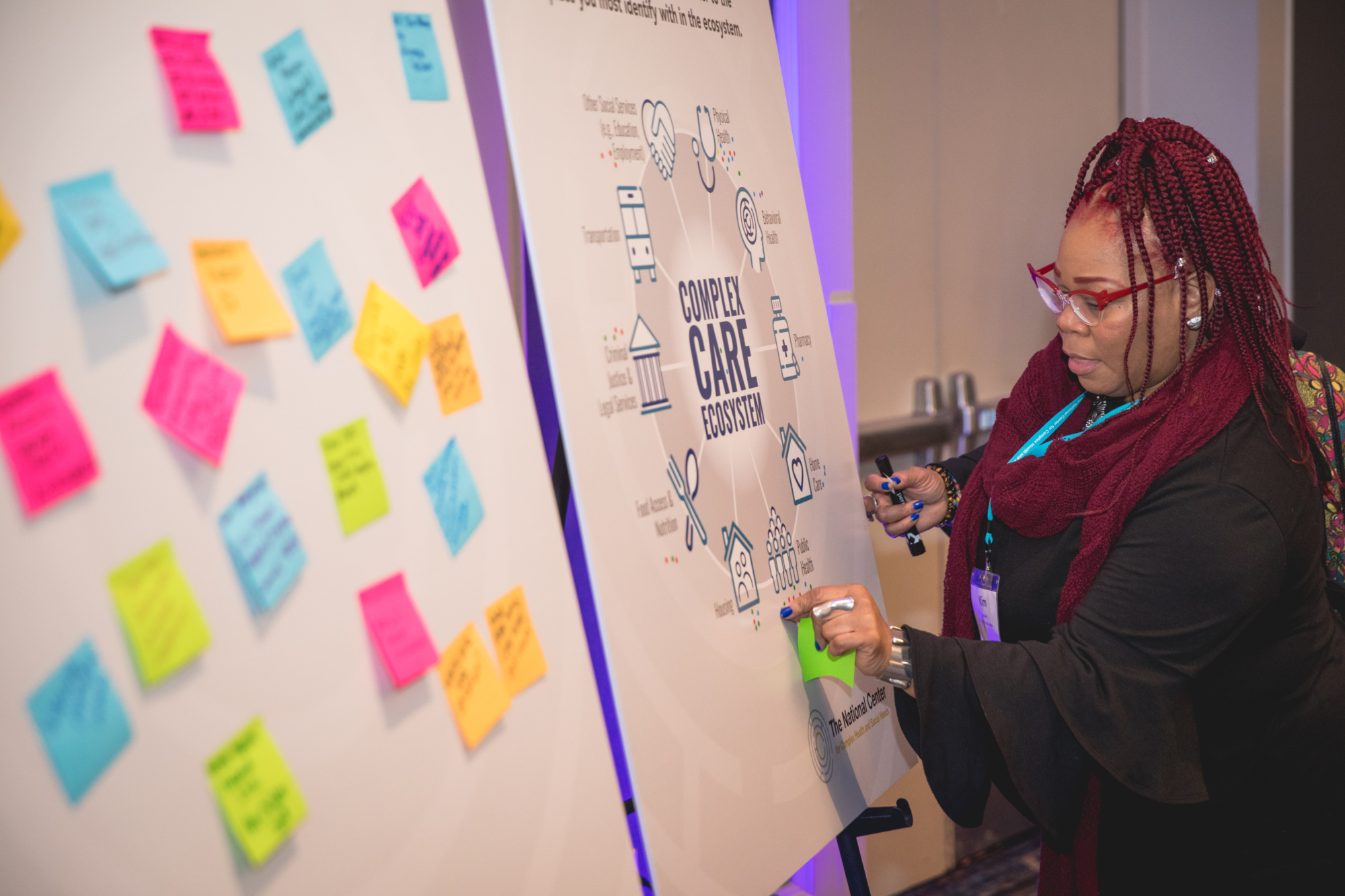Valued behavioral health outcomes in complex care
Data analysis & integration Behavioral health & addiction Measurement & evaluation
Care management & redesign Data analysis & integration Measurement & evaluation Quality improvement
As we – and the larger field of complex care – seek new and better ways to measure the impact of care management and other wrap-around and navigation programs, a major challenge is capturing participants’ progress toward self-identified goals in a systematic and standardized way.
Demonstrate the impact of implementing person-centered outcome measures in complex care to augment care teams’ abilities and enable more holistic measurement of program impact.
Individuals with complex health and social needs often receive fragmented, costly care that is not aligned with what matters most to them. Complex care programs aim to change that by centering care planning around the goals of the program participant. Until recently, it has been difficult to measure to what degree programs succeed at supporting participants to meet their goals, since the goals themselves are participant-driven, highly varied, and not standardized.
Since 2015, the National Committee for Quality Assurance (NCQA), the measurement leaders who developed HEDIS and other industry standards for measuring value in healthcare, has been developing the Person-Centered Outcome (PCO) Measures in collaboration with individuals, care partners, clinicians, and researchers. Person-centered outcomes are “personalized, structured, measurable goals identified by a person with complex health status or caregiver and can be used for both care planning and quality measurement” (NCQA, 2023).
In 2022, NCQA invited the Camden Coalition to participate in a new learning collaborative to continue testing and refining the PCO measures and receive support in implementing and reporting them. The learning collaborative runs from June 2022 through December 2023. Each participating organization helps shape the development of reporting and audit guidelines for the PCO measures, as well as inform future refinements and educational materials.
NCQA identified two methods of documenting, tracking, and measuring progress toward person-centered outcomes:
The Camden Coalition decided to focus on goal-attainment scaling (GAS) as a way to quantify our participants’ progress toward the goals they identify.
Once the care team identifies what matters most to the participant, they work with the participant to describe the overall picture of what it means to meet the goal using goal-attainment scaling:
The scale guides care team members and participants in their collaborative creation of a plan to achieve the goal and address any potential barriers to progress or achievement. During follow-up visits throughout the participant’s time in the program, the participant and their care team lead each rate the participant’s progress toward their goal. If the program participant is not reaching their identified goal, the care team member can raise the option of either changing the goal, revising the scale, or revising the action plan during their follow-up discussion.
Camden Coalition staff began scaling goals for its care management participants in August 2022. Each goal, along with an action plan and progress ratings, is documented through electronic forms created in our internal care management platform. Throughout the duration of the PCO Learning Collaborative, this data is deidentified and sent to NCQA quarterly to be assessed for fidelity.
As of March 2023, Camden Coalition staff have collaboratively identified and scaled goals with 44 program participants using the GAS approach. Of these participants, 44% have achieved their goals with the support of our care teams.
While the PCO measures appeal to Camden Coalition staff, they have experienced some implementation challenges, which have been discussed with our partners at NCQA, and with the other sites in the learning collaborative. They include:
We have addressed these challenges by:
Our goal is to have goals identified and scaled for 100 care management participants using the GAS approach by the end of 2023. In the meantime, our care team staff are actively implementing the PCO measures with current participants. Additionally, we will continue to engage with NCQA and the other learning collaborative teams to refine our methods of collecting and reporting PCO data.
By the end of this pilot, we hope to use the data we’ve collected to identify which care team activities directly support participants in meeting their goals.
Data analysis & integration Behavioral health & addiction Measurement & evaluation
Care management & redesign Measurement & evaluation Quality improvement
Community & consumer engagement Data analysis & integration Measurement & evaluation Quality improvement


